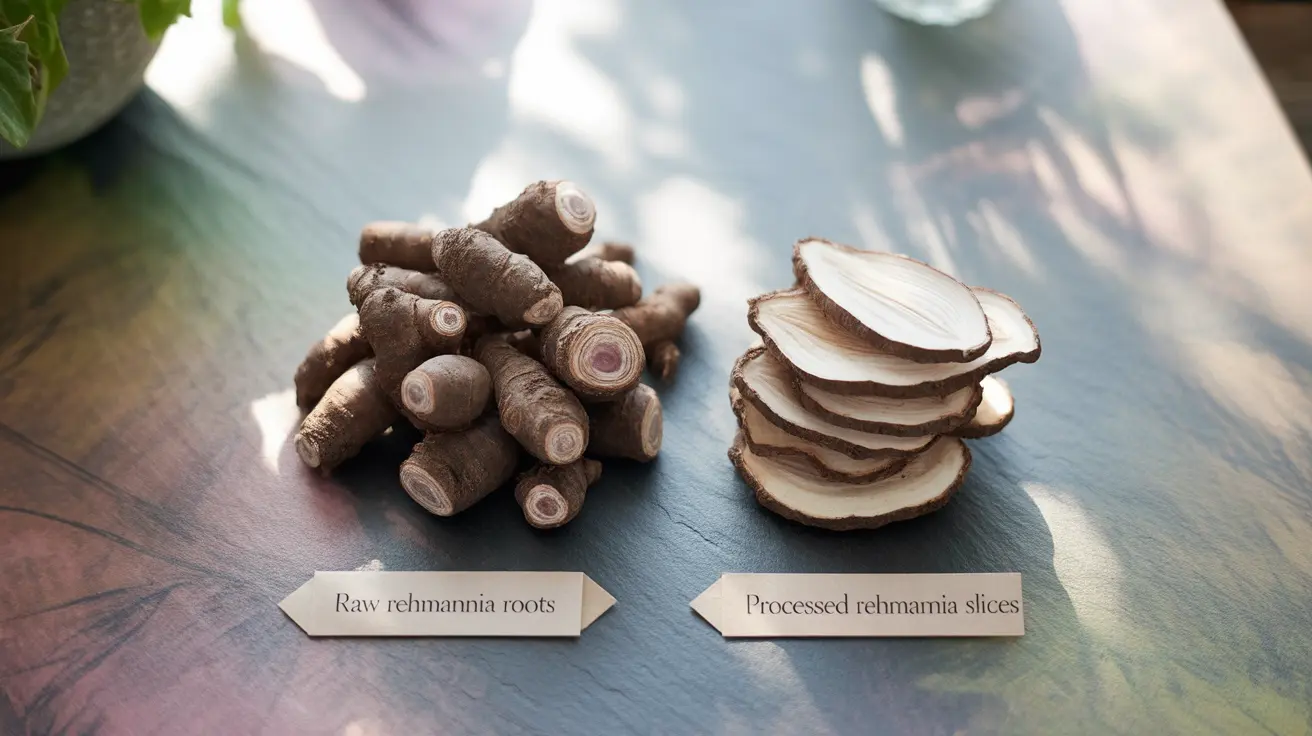Rehmannia, a fundamental herb in Traditional Chinese Medicine (TCM), has been used for thousands of years to support various aspects of health and wellness. This remarkable plant, scientifically known as Rehmannia glutinosa, continues to draw attention from both traditional practitioners and modern researchers for its potential therapeutic properties.
As interest in natural medicine grows, understanding rehmannia's benefits, applications, and safety considerations becomes increasingly important for those seeking alternative health solutions.
Understanding Rehmannia's Role in Traditional Chinese Medicine
In TCM, rehmannia is considered a versatile tonic herb that primarily supports kidney and liver function. The root of the plant is used medicinally and is available in both raw and prepared forms, each with distinct therapeutic applications.
Traditional practitioners classify rehmannia as a "blood tonic" that helps nourish and regulate the body's vital energy. It's often prescribed to address conditions related to blood deficiency, hormonal imbalances, and age-related health concerns.
Scientific Research and Modern Applications
Modern scientific investigation has begun to validate some of rehmannia's traditional uses through clinical studies and laboratory research. Researchers have identified several bioactive compounds in the herb, including iridoid glycosides and polysaccharides, which may contribute to its therapeutic effects.
Blood Sugar Management
Recent studies have shown promising results regarding rehmannia's potential role in blood sugar regulation. Some research suggests that compounds in rehmannia may help improve insulin sensitivity and support healthy glucose metabolism, though more clinical trials are needed to confirm these effects.
Anti-inflammatory Properties
Scientists have documented significant anti-inflammatory properties in rehmannia extracts, which may explain its traditional use in treating various inflammatory conditions. These properties could be particularly beneficial for joint health and immune system support.
Preparation and Consumption Methods
Rehmannia can be prepared and consumed in several ways, each suited to different therapeutic purposes:
- Raw rehmannia (Sheng Di Huang)
- Prepared/processed rehmannia (Shu Di Huang)
- Tinctures and liquid extracts
- Standardized supplements
- Traditional decoctions and formulas
The processing method can significantly affect the herb's properties and intended benefits, making it crucial to choose the appropriate form for specific health goals.
Safety Considerations and Precautions
While rehmannia has a long history of traditional use, certain precautions should be observed:
- Pregnant and nursing women should consult healthcare providers before use
- People with digestive sensitivities may need to start with lower doses
- Those taking blood sugar medications should monitor their levels carefully
- Some individuals may experience mild digestive discomfort initially
Frequently Asked Questions
What are the traditional uses of rehmannia in Chinese medicine?
In Traditional Chinese Medicine, rehmannia is primarily used as a blood tonic, supporting kidney and liver function. It's traditionally prescribed for conditions related to blood deficiency, hormonal imbalances, and age-related health issues.
Can rehmannia help with blood sugar control or diabetes management?
Scientific research suggests that rehmannia may help support healthy blood sugar levels and improve insulin sensitivity. However, more clinical studies are needed, and anyone with diabetes should consult their healthcare provider before using rehmannia.
What are the potential side effects and safety concerns of taking rehmannia supplements?
Common side effects may include mild digestive discomfort, especially when first starting use. The herb may interact with blood sugar medications and should be used with caution during pregnancy and nursing. Always consult a healthcare provider before starting any new supplement regimen.
How is rehmannia typically prepared and consumed for medicinal purposes?
Rehmannia can be used in various forms, including raw (Sheng Di Huang), prepared (Shu Di Huang), tinctures, standardized supplements, and traditional decoctions. The preparation method is chosen based on the specific therapeutic goal.
Are there any scientific studies supporting the health benefits of rehmannia?
Yes, modern research has identified several bioactive compounds in rehmannia and demonstrated its anti-inflammatory properties and potential benefits for blood sugar regulation. However, more large-scale clinical trials are needed to fully validate its traditional uses.




